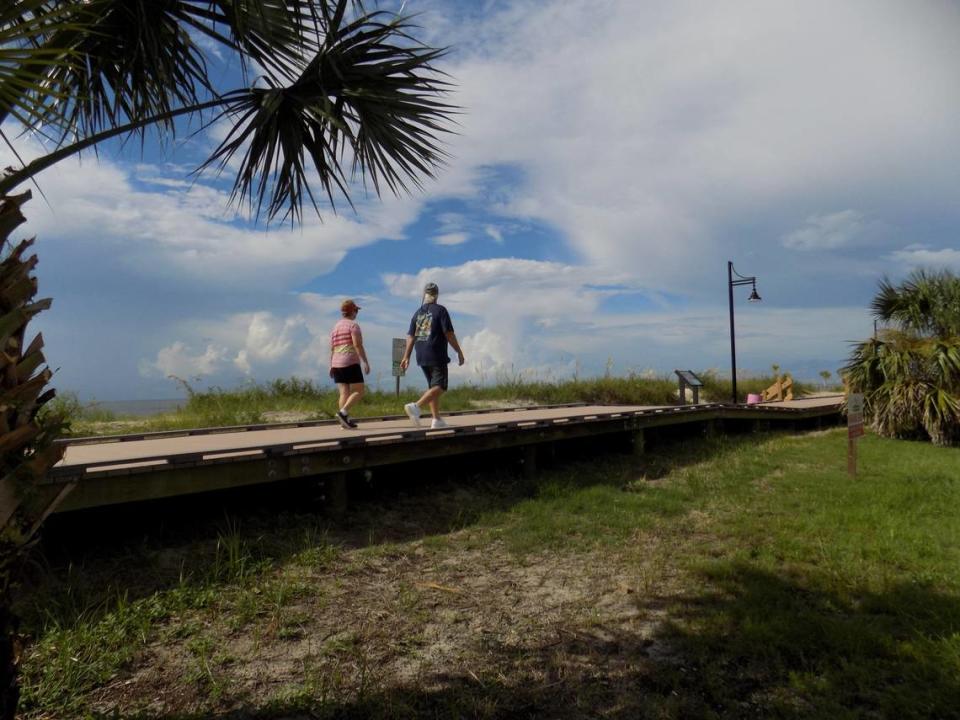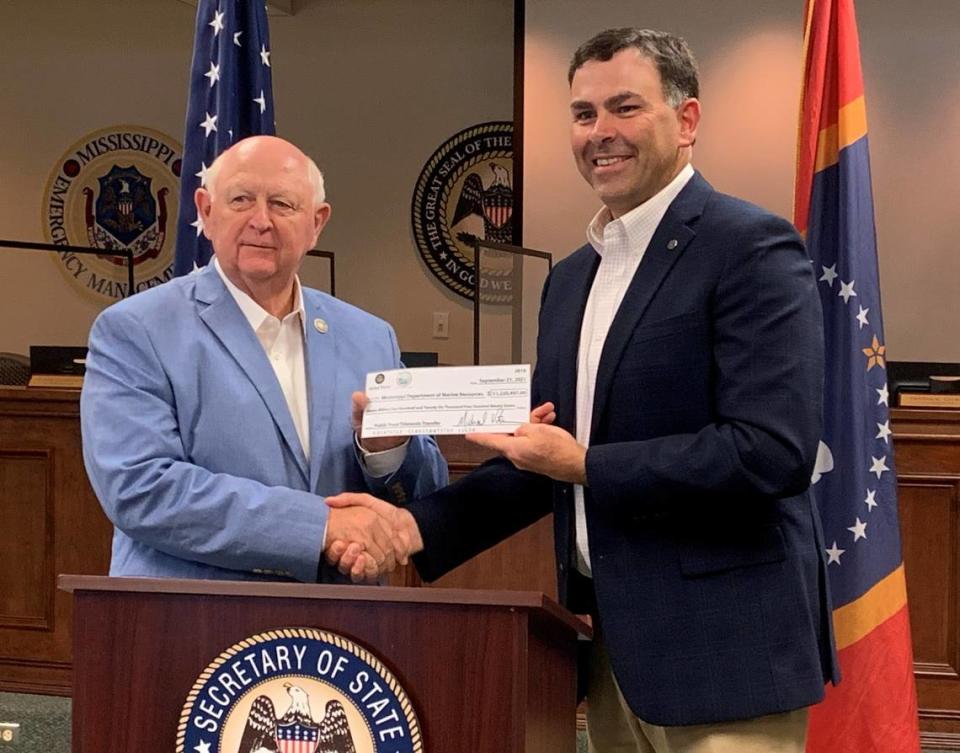Senators voting on control of Coast harbors & casino sites after overwhelming House vote
State lawmakers learned in December that two votes on the Mississippi Gaming Commission can change years of policies and rules established under multiple secretaries of state, legislatures and gaming commissioners, said David Blount, D-Hinds County, Senate Gaming Committee chairman.
The fix is Senate Bill 2780 that clarifies the law, Blount said, and would require every casino developer on the Coast to get a tidelands lease directly from the Secretary of State.
Changes made to the bill by the Senate Gaming Committee protect control of Coast cities over their ports and harbors while requiring them to get a tidelands lease or agreement with the state.
“Those decisions about how best to manage those marina related activities are made by the locals in this bill,” Blount said.
The bill isn’t retroactive and doesn’t rescind the controversial decision by the two members of the Gaming Commission to give RW Development site approval for a casino on U.S. 90 at Veterans Avenue in Biloxi.
The Gaming Commission decision in December gave RW a deadline of three years to secure financing in order to get approval to proceed.
Historically, that’s an aggressive timeline for a Coast casino. It’s even more challenging given higher interest rates, intense competition from nine other casinos in the immediate Biloxi area and consumers pulling back on casino spending in Mississippi and other areas.
Talk to anyone in finance who deals with casino projects and they’ll tell you there’s no appetite to fund large projects in Mississippi, said Sen. Scott DeLano, R-Biloxi. That’s because of the competitive pressures from the 12 existing casinos on the Coast and also legislation being considered to expand gambling in neighboring states of Alabama, Louisiana, Georgia and Florida.
The bill next goes to the Senate floor for debate, said Sen. Brice Wiggins, R-Pascagoula, a co-sponsor of the bill and a member of the Ports & Marine Resources Committee. The RW decision “No doubt was the catalyst for this legislation, certainly for me,” Wiggins said. “It was not the only reason.”
Tug of war
On Feb. 27, the Biloxi Council passed a resolution requesting the Mississippi House and Senate hold public hearings on SB 2780 and HB 1659.
On Feb. 29, the House overwhelming passed the bill 113-6, but with House Gaming Committee Chairman Casey Eure and two other Coast representatives, Hank Zuber and Zach Grady, among the six voting against it.
“The mayor of Biloxi and D’Iberville asked me to oppose it,” said Eure, a Republican who represents those cities.
The legislation proposes “radical changes” in 100 laws, Biloxi Mayor Andrew “FoFo” Gilich contends. Biloxi has so much waterfront with so much potential, he said, and under this bill one person in Jackson — now Secretary of State Michael Watson — would control it.
Gilich said none of the cities or Harrison County were consulted on the bill, “So we are having to play catch-up.”
Court battles
“This is a very complex issue that affects all of our communities on the Coast,” DeLano said. There have been ongoing court cases for 10 or 15 years, he said, and this is one of the first times there have not been any court cases pending.
Biloxi has had several legal battles with secretaries of state over tidelands issues and Gilich repeatedly criticizes how tidelands funds are distributed. Most of the money paid into the tidelands fund each year is generated by Biloxi casinos, while much of the $12.5 million paid out in 2023 was spread to other cities across the Coast for piers and public waterfront improvements.

Biloxi is the only city on the Coast that doesn’t have a Tidelands lease or agreement with the secretary of state for its harbors, Blount said. The city would be required to get the leases if the bill passes, he said.
“The Secretary of State does not need to have a say in how we develop and manage our ports,” Gilich said. “Our track record is excellent, and we don’t need an additional layer of red tape.”
Blount said the bill protects public access to the beach and gives local cities and counties autonomous control of their ports and harbors once they get a tidelands lease with no fees.
Public uses of tidelands by any state or local governmental must serve a higher public purpose and can’t be used for a casino, said Mike Thompson, chairman of the Senate Ports & Marine Resources Committee.
Not eliminating competition
Delano said Thompson spoke to attorneys representing municipalities on the Coast about independent management of their small craft harbors, while Blount talked to casino operators.
“The purpose of this bill is to restore a consistent regulatory environment for the gaming industry on the Gulf Coast,” Blount said.
“The bill has been requested and supported by every single casino on the Gulf Coast,” he said.
“Biloxi supports gaming laws, which provide a level playing field for existing and new operators,” the mayor said. “We do not support a moratorium, which is what some versions of this building would impose.”
Blount said the bill doesn’t limit competition and nothing in the bill will affect any of the casino sites already approved.
“It does however, let casinos who are considering whether or not to make further investments on the Gulf Coast, know what the rules are going to be.”
There are 17 legal casino sites approved on the Mississippi Gulf Coast.
Blount said there’s no change to any approved casino site under the bill, its not imposing any new requirements on any casino and there is no change to how the tidelands money will be distributed.
“All of that money is spent on the Gulf Coast to improve the Gulf Coast,” he said.


